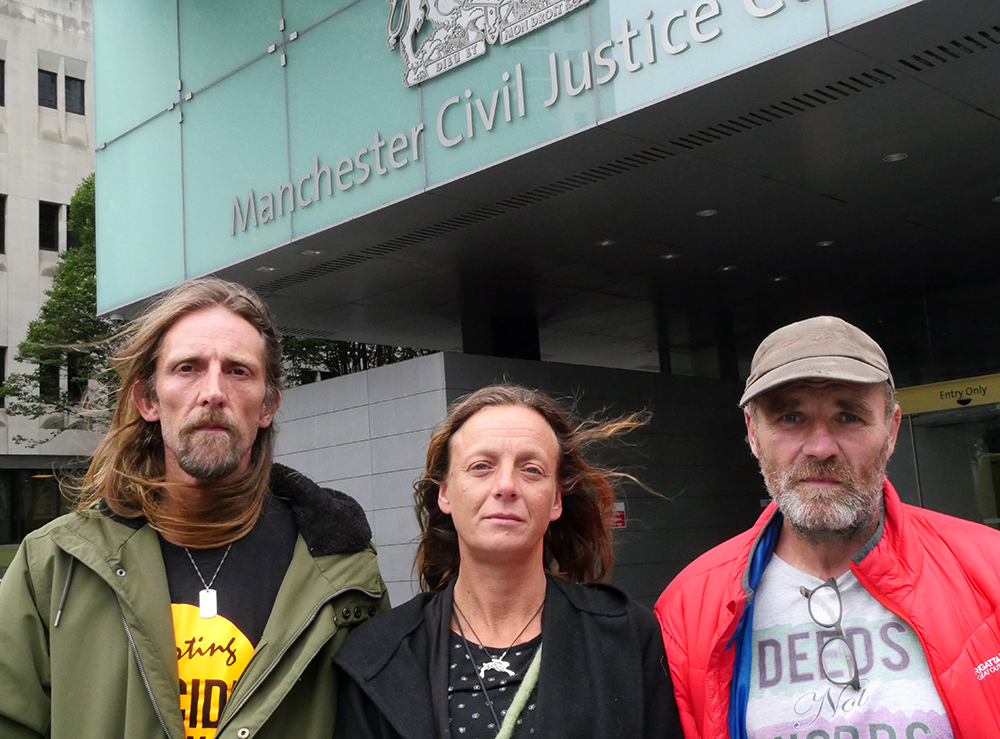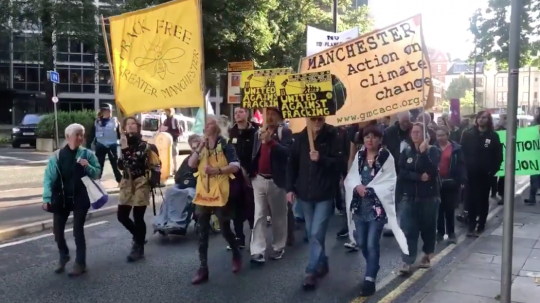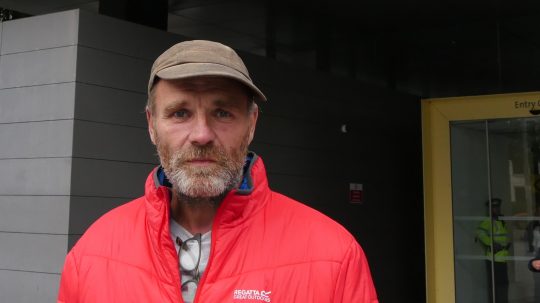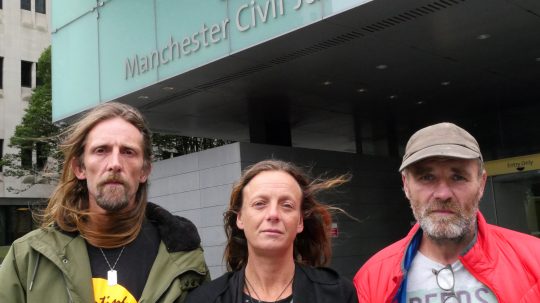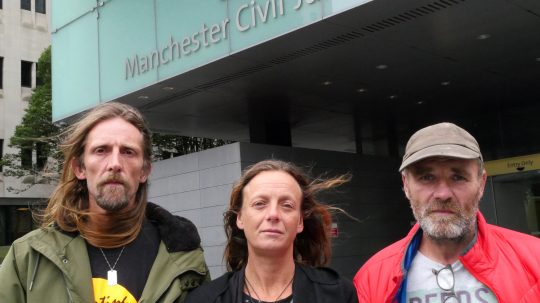Environmentalists who were handed suspended jail sentences after being found in breach of an injunction curtailing protest at a fracking site have appealed against the decision.
The Court of Appeal heard this week that a court order restricting protest by “persons unknown” at Lancashire’s Cuadrilla shale gas site – which earlier this year experienced the UK’s biggest ever fracking-related tremor – “should never have been made in the form it was”.
It was argued that the injunction’s wording was too “unclear and uncertain” for campaigners to be brought before the courts and punished for a possible breach.
The case dates back to 24 July 2018 when Christopher Wilson, 55; Katrina Lawrie, 41; and Lee Walsh, 44, took part in a “lock-on” protest at the site.
With their arms fastened together inside tubes, they blocked traffic going in and out of the shale gas site near Blackpool in Lancashire for around six-and-a-half hours.
Lawrie was sentenced to an additional two months in prison suspended for two years for a separate alleged breach. She ran into Preston New Road in August last year, causing a lorry to swerve out of the way.
Mr Justice Pelling QC, who had granted the original injunction, sentenced the trio to four weeks in prison suspended for two years in September, after having found them in contempt of court for breaching the order.
Since the hearing took place, the government has halted fracking in England in a major U-turn. It came after a study by the Oil and Gas Authority warned that it was not possible to rule out “unacceptable” consequences for those living near fracking sites.
Suspended Sentences ‘Manifestly Excessive’
Lawyers representing the campaigners argued that Pelling made an error in finding them in contempt of court because the injunction he granted was “insufficiently clear and certain”.
This uncertainty was said to be due to the injunction’s wording, which included a ban on protesters walking slowly in front of vehicles with the “intention of causing inconvenience or delay” to Cuadrilla.
In written submissions, it was argued that “a layperson should not be left with the difficult assessment, on pain of imprisonment, of whether they have or do not have the legal intention… of causing inconvenience and delay to or damaging a company.
“They may reasonably consider that their true intention is to prevent fracking, or protect the environment, or to protest. This leave the position too uncertain and chilling for a protest injunction.”
All references to “intention” were removed from the order following an appeal hearing in September.
It was also argued that it was “inappropriate or manifestly excessive” to impose a suspended sentence on peaceful protesters. Kirsty Brimelow QC, representing the trio, highlighted that people convicted in protest cases are often given conditional discharges.
Representing Cuadrilla, barrister Tom Roscoe opposed the appeal and defended Pelling’s injunction order.
In written submission he said that the injunction was justified as protests against Cuadrilla’s activities “went far beyond attempts to express views and ventilate opinions”.
Rather, it “has involved a campaign of ‘direct action’ designed to force (not persuade) Cuadrilla to cease operations”.
He also argued that Pelling was correct in deciding that reference to “intention” did not render his injunction too unclear or uncertain to bring the protesters before the courts.
The Court of Appeal has reserved judgement and will hand down their decision at a currently unspecified date.
Barrister Adam Wagner, EachOther’s chair and founder, is acting in this case. He had no involvement in writing this article.

